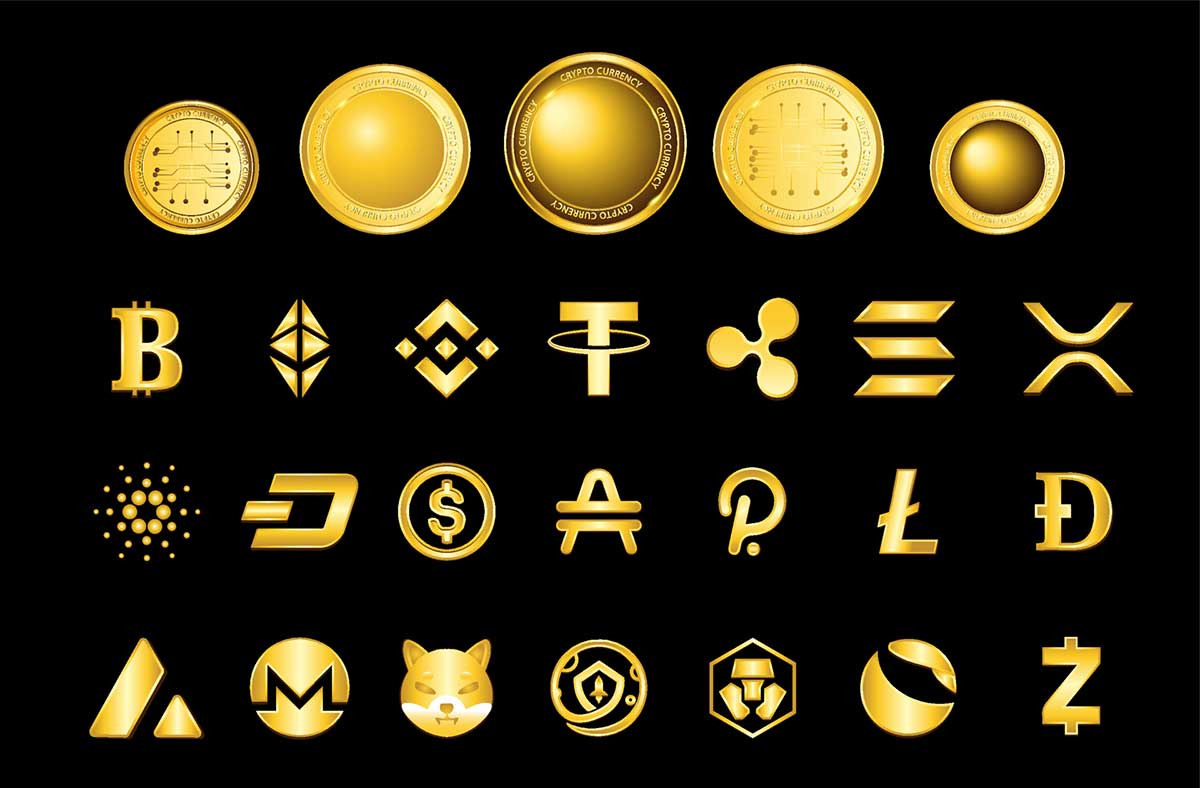How Blockchain Empowers Organizations in Sharing Data

Blockchain technology helps organizations share data securely and transparently. It creates an immutable record of every transaction, preventing data tampering and ensuring data accuracy.
With blockchain, organizations can easily share data and collaborate without the need for intermediaries. This technology enables faster, cost-effective, and reliable data sharing, reducing the risk of data breaches. Blockchain offers many benefits for organizations that require data sharing, including healthcare, finance, and supply chain management.
In this article, we’ll delve deeper into how blockchain technology helps organizations when sharing data and discuss the potential use cases of this game-changing technology in various industries.

Credit: venturebeat.com
Advantages Of Using Blockchain In Sharing Data
Blockchain technology has transformed the way businesses share information and data. It provides an immutable and decentralized platform that enables data sharing in a safe, secure and efficient manner. In this blog post, we will discuss the advantages of using blockchain in sharing data with a focus on enhanced security and privacy, reduction in transactional costs, increased efficiency and transparency.
Enhanced Security And Privacy
Cybersecurity is a significant concern for businesses in this digital age. Hackers and cybercriminals are continually finding ways to access sensitive information from businesses and organizations. Blockchain provides unparalleled levels of security by making it almost impossible for hackers to corrupt or hack into the system due to the distributed ledger technology.
The technology makes all the data tamper-proof, and any attempts to hack into the system will lead to a break in the entire chain, hence making it more secure.
Furthermore, blockchain technology uses cryptography to protect sensitive data, ensuring only authorized individuals have access to the information they need. This technology allows companies to share data more securely, reducing the risk of cyber-attacks and unauthorized access to confidential information.
Other benefits of enhanced security and privacy include:
- User identities are secure, anonymous, and protected from unauthorized access.
- Private keys provide control to the users and improve the security of digital identities stored on the blockchain.
- Data is not controlled by any central authority, and the changes made can only be done through consensus.
Reduction In Transactional Costs
Blockchain technology offers companies cost-saving benefits by reducing the need for intermediaries that are essential for traditional financial transactions. Since smart contracts are self-executing, intermediaries such as banks, brokers, and escrow services are no longer necessary.
The smart contract system ensures that there is no possibility of fraud or intervention for transactions, reducing the costs associated with intermediaries’ services. In the long run, businesses can save a significant amount of money on transactional costs and invest more in other critical areas of their operations.
Other benefits of reduced transactional costs include:
- Increased transaction speed, which reduces the time taken for transactions to be processed.
- Elimination of paperwork and the need for manual record keeping, reducing the operational costs associated with storage, processing, and retrieval of paper-based documents.
- Transparency of transactions that reduces the potential for disputes and errors.
Increased Efficiency And Transparency
Blockchain technology enables businesses to share data more efficiently and transparently. The distributed ledger technology allows stakeholders to have real-time access to critical data, reducing the time it takes to share information and make decisions. Moreover, it allows multiple parties to access the information simultaneously, providing better coordination and collaboration between them.
The transparency of blockchain technology ensures that all parties have access to the same information, increasing accountability and reducing the potential for errors. The information that is recorded on the blockchain is immutable, meaning that it cannot be modified or deleted.
Therefore, businesses can confidently share their data with their stakeholders, knowing that it is accurate and up to date.
Benefits of increased efficiency and transparency include:
- Improved supply chain management
- Reduced processing time for public tenders
- Better auditing and cost management
Blockchain technology has revolutionized the way businesses share data and information. By providing enhanced security and privacy, reducing transactional costs, and increasing efficiency and transparency, blockchain has become essential to the success of any organization.
How Blockchain Overcomes Common Challenges In Data Sharing
How Blockchain Empowers Organizations In Sharing Data
Data sharing lies at the core of most organizations, facilitating the communication and exchange of information they need to grow and succeed. Blockchain technology offers a robust and secure way for organizations to share critical data without compromising on security, transparency, or efficiency.
In this blog post, we will discuss how blockchain overcomes common challenges in data sharing.
Centralized Data Storage
Traditional data storage systems use centralised servers to store all information in one location. While this may have been the standard for many years, centralised storage comes with several limitations. For instance, centralised storage makes information vulnerable to hacking, which can lead to data leaks, breaches and loss of trust.
Blockchain technology eliminates centralised storage, ensuring that data is distributed across multiple nodes, each containing a copy of the same data. This makes it incredibly difficult for hackers to attack the system since they would have to alter the information on every node simultaneously, a process which is nearly impossible.
Bullet points:
- Centralised storage is vulnerable to hacking attacks.
- Blockchain uses decentralised storage, which makes hacking difficult.
- Blockchain distributes data across multiple nodes.
Data Interoperability
The exchange of data across different platforms and systems can be challenging, especially when multiple data formats are involved. Blockchain technology provides a solution to data interoperability issues.
Blockchain creates smart contracts that automate the entire data sharing process, ensuring that data is exchanged seamlessly despite the different data formats. This eliminates the need for an intermediary, which reduces costs and increases efficiency.
Bullet points:
- Interoperability issues arise when exchanging data across multiple systems.
- Blockchain creates smart contracts that automate the data exchange process.
- Data is exchanged seamlessly despite different formats.
Data Ownership And Control
Data ownership and control are critical considerations when sharing data, and are often complex. Blockchain technology provides a transparent and secure way for organizations to manage data ownership and control.
Blockchain allows users to control who sees their data, while preventing the modification or tampering of data without the user’s permission. This is made possible by the use of public and private keys, which ensure that only authorized parties can access the data.
Bullet points:
- Data ownership and control are important considerations when sharing data.
- Blockchain provides a transparent and secure way to manage data ownership and control.
- Public and private keys ensure only authorized parties can access data.
Blockchain technology offers organisations a secure and efficient way to share data by eliminating centralised storage, providing a solution to interoperability issues and ensuring data ownership and control. By adopting blockchain technology, organizations can protect their critical data and facilitate the exchange of information securely and seamlessly.
Use Cases For Blockchain In Data Sharing
Blockchain is quickly becoming a buzzword across industries as companies look to harness this technology’s power. It uses a decentralized system to store information, making it difficult to alter or manipulate records, and enables secure, transparent data sharing across a network.
Let’s delve into the use cases for blockchain in data sharing, focusing on three prominent industries: healthcare, supply chain management, and banking and finance.
Healthcare
Blockchain has the potential to transform healthcare by streamlining the sharing of sensitive data. Here are some key points:
- A patient’s medical history can be stored securely on a blockchain network, with the patient controlling access to their data. This allows for more efficient sharing of information among healthcare providers, resulting in better decision-making and better patient care.
- Blockchain can improve the tracking of prescription drugs, reducing the likelihood of counterfeit medications. By enabling tracking of drugs’ journeys from manufacturer to patient, supply chains can be made more transparent and secure.
- It can also be used to empower clinical trials by facilitating the sharing of data between trial sites. The data will be protected and immutable, facilitating audits and enabling early detection of issues.
Supply Chain Management
Blockchain can help ensure the provenance and authenticity of goods, making supply chain management more efficient and transparent. Here are some key points:
- Blockchain can be leveraged to track the provenance of high-value goods, such as diamonds, and help combat fraud and theft. By using tamper-proof smart contracts, blockchain can enable end-to-end tracking of goods, ensuring that they pass through all necessary checkpoints along their journey.
- It can play a significant role in promoting sustainability by creating trusted track and trace ecosystems, reducing the amount of waste, pollution and human rights abuses involved in supply chains.
- Blockchain can enable supply chain financing, ensuring that suppliers get paid more quickly and strengthening relationships between partners.
Banking And Finance
Blockchain technology offers numerous benefits for the finance industry, including increased transparency, greater efficiency, and reduced fraud. Here are some key points:
- Blockchain can help prevent fraud by facilitating secure and transparent transactions, removing intermediaries, and reducing the potential for human error.
- It can streamline cross-border payments, reducing the amount of time and cost associated with traditional methods of payment through intermediary banks.
- Blockchain can enable decentralized finance (defi), enabling peer-to-peer transactions without intermediaries, providing greater financial freedom and access to those excluded from the traditional financial ecosystem.
Blockchain is rapidly transforming the way data is shared across organizations in numerous industries. The healthcare sector, supply chain management, and banking and finance are just some areas that are benefiting from this technology’s transformative effects. Ultimately, blockchain has the potential to make our world a better, more secure place.
Challenges In Implementing Blockchain For Data Sharing And Solutions
Blockchains are a relatively new technology but are rapidly gaining popularity among organizations because of their ability to facilitate data sharing while maintaining security. However, implementing blockchain technology for data sharing can come with its fair share of challenges. In this section of the blog post, we will examine the most prevalent challenges and their solutions.
Issues With Scalability
One problem with using blockchain technology for data sharing is scalability. Here are some of the key points concerning the scalability issues:
- As the number of participants increases, the amount of data stored on the blockchain also increases, creating a bottleneck.
- This issue is compounded by the fact that each participant maintains a complete copy of the data.
- This problem is further exacerbated as more transactions occur, leading to larger blocks recorded in the blockchain, slowing down the validation process.
There are several ways to address these scalability challenges, including:
- Sharding: Breaking the blockchain into smaller partitions to help increase the transaction speed and reduce the data stored on each node.
- Second-layer solutions: Building separate processing channels for some of the transactions, without adding them to the blockchain.
- Distributed storage: Storing data off-chain, making it more accessible to participants, increasing blockchain performance.
Regulatory Challenges
Regulatory issues also pose a challenge to the implementation of blockchain technology for data sharing. Here are some key points about regulatory challenges:
- The lack of established norms for data sharing with blockchain technology makes it challenging to adhere to regulatory requirements.
- Regulations may conflict with blockchain technology’s fundamental principles, such as privacy or data storage, for example.
- Differences in legislation from one jurisdiction to another can be challenging to manage effectively.
Solutions to regulatory challenges include:
- Adhering to the regulations, aligning the blockchain technology’s principles with existing regulations.
- Providing an amenable interface to regulatory authorities, allowing them to participate in developing rules and regulations.
- Creating verifiable data storage protocols, which ensure that data is not tampered with and has not been exposed to data storage vulnerabilities.
Blockchain technology holds enormous potential to transform data sharing for organizations. Despite challenges such as scalability and regulatory issues, there are viable solutions to these problems. Therefore, many businesses are exploring blockchain tech’s capabilities and its potential to take data sharing to the next level.
Frequently Asked Questions For How Does Blockchain Technology Help Organizations When Sharing Data
How Does Blockchain Technology Ensure Secure Data Sharing?
Blockchain technology offers a decentralized approach to storing data that eliminates the need for centralized intermediaries, making it resistant to data tampering. It also ensures security through the use of public-key encryption, biometric identification, and sophisticated consensus algorithms.
Can Blockchain Technology Prevent Unauthorized Access To Data?
Yes. With blockchain, data is stored in cryptographic blocks that require complex mathematical computations to access. This implies that unauthorized parties cannot access data unless they have the necessary permissions granted to them by the owners.
Can Blockchain Technology Guarantee Data Privacy In Organizations?
Blockchain technology offers an immutable, tamper-proof, and transparent log of every interaction that happens within it. This transparency ensures that sensitive information cannot be altered without detection, providing a guarantee of data privacy.
How Does Blockchain Technology Enable Faster Data Sharing?
Blockchain technology eliminates the need for intermediaries to oversee data sharing, thereby facilitating faster and seamless sharing. Its speed in verifying transactions in a decentralized network is impressive, making data transfer more efficient for organizations.
What Are The Benefits Of Using Blockchain Technology For Data Sharing?
Blockchain technology provides a secure, immutable, and decentralized approach to data sharing. It offers transparency, trust, and accountability while reducing the risk of data breaches, tampering, and manipulation. It also simplifies processes and eliminates intermediaries related costs.
Conclusion
Blockchain technology has proven to be a game changer in data sharing for organizations. With its decentralized nature and increased security measures, organizations are able to share data seamlessly without the fear of breaches or unauthorized access. This technology has opened up opportunities for businesses to partner and collaborate without having to worry about data leaks.
Blockchain has also enabled organizations to maintain transparency and accountability, which is essential for building trust among stakeholders. Conclusively, as more organizations continue to adopt this technology, it will undoubtedly pave the way for more secure and efficient data sharing, which will ultimately lead to increased productivity, profitability, and trust.
As we move into a more digitized and data-driven world, blockchain technology will play a vital role in shaping the future of organizations.







